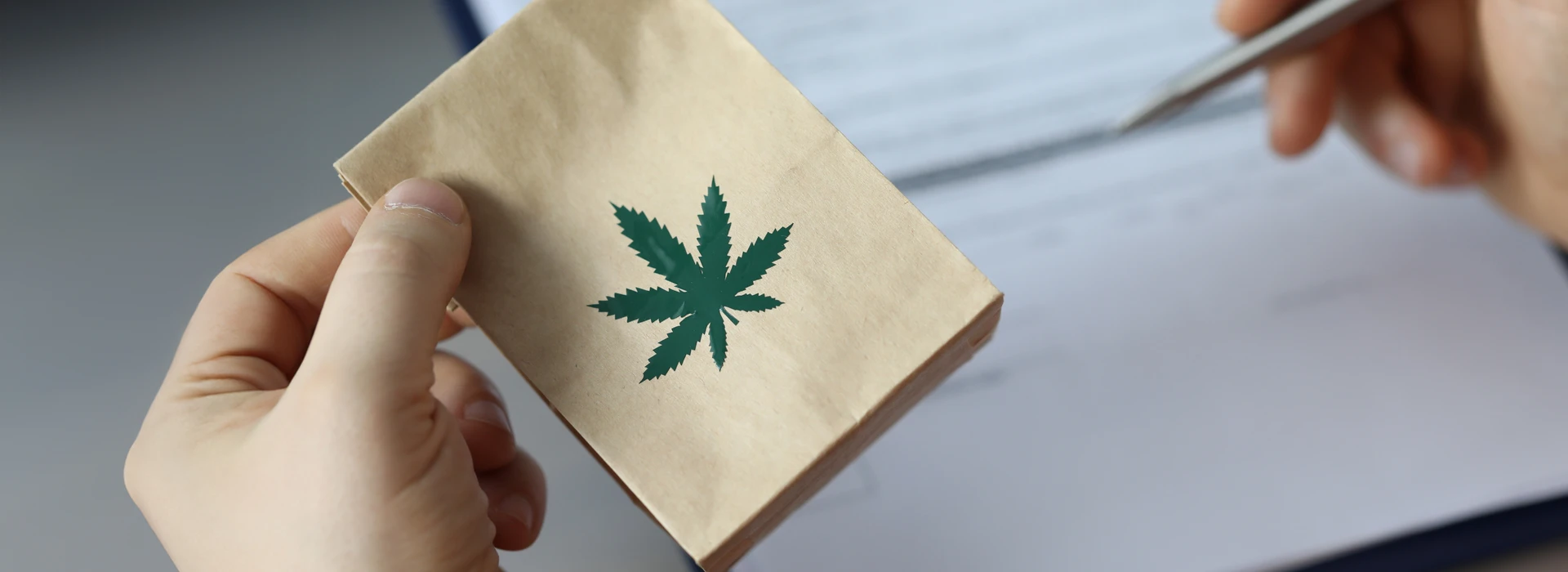
Dra. Emma Collins
Clinical Psychiatrist & Medical Detox Specialist
Cocaine leaves your system faster than it leaves your life, and detoxing safely takes more than quick fixes. The fastest way to detox from cocaine is to seek medical or professional support to help your body clear the drug and manage withdrawal symptoms. These steps give your system a chance to recover naturally while keeping health risks down.
How Cocaine Is Processed in the Body
Your body breaks down cocaine quickly, but traces of the stimulant drug can stay much longer than you might expect. When you use cocaine, your liver and blood enzymes turn it into smaller compounds called metabolites, mainly benzoylecgonine and ecgonine methyl ester. Drug tests look for these metabolites rather than cocaine itself.
Your metabolism, hydration, and liver function all affect how fast your body clears cocaine. During cocaine detox, drinking plenty of water, eating nutritious meals, and resting can support your system.
However, natural detox methods alone aren’t always enough. A medical detox under professional supervision helps manage withdrawal symptoms safely and reduces the risk of relapse.
What Is Cocaine Detox?
Cocaine detox is often the first step in a comprehensive treatment program for those facing substance use disorder. It focuses on clearing cocaine from your body and managing withdrawal symptoms like fatigue, anxiety, and intense cravings.
While cocaine withdrawal is primarily psychological compared to drugs like alcohol or opioids, the effects on both your mind and overall health can still be intense.
As your body adjusts, dopamine levels drop, leading to exhaustion, irritability, and sadness. These are clear signs that your system is trying to recover from drug abuse.
During this stage, you may feel unusually tired, restless, or emotionally unstable, but these feelings generally ease after the first week of detox. Structured programs help stabilize your mood and reduce the risk of relapse, ensuring you stay supported throughout your early recovery journey.
Medical vs At-Home Detox
A medical detox is usually conducted in an inpatient or residential setting, where trained professionals monitor your progress and provide constant support. This type of inpatient care often includes therapy, routine health checks, and, in some cases, medications to ease the more difficult aspects of withdrawal.
In contrast, trying to detox at home means managing withdrawal symptoms alone. We never recommend this approach. Without emotional guidance or medical oversight, it’s easier to slip back into old patterns, especially when depression or cravings become overwhelming.
Choosing a supervised medical detox within a structured rehab program always provides a far safer and more effective path toward long-term healing.

What Is the Safest and Fastest Way to Detox from Cocaine?
The safest and fastest way to detox from cocaine is through a medical detox program led by trained professionals. Under constant medical supervision, doctors and nurses monitor your vitals 24/7 to prevent complications.
In a professional detox treatment setting, medications may be prescribed to ease the withdrawal symptoms. For example, modafinil can help restore alertness, baclofen may reduce cravings, and certain antidepressants can help stabilize your mood.
While no medication has yet been proven fully effective for cocaine use disorder (CUD), current research highlights these agents, along with behavioral therapies, as the most promising strategies for improving treatment outcomes.
How Long Does Cocaine Detox Take?
Different drug tests detect cocaine and its byproducts for varying lengths of time. Detection depends on the type of test, your metabolism, and how often you use cocaine.
Typical detection windows include:
- Blood: Detectable for about 12–24 hours, since cocaine clears quickly from the bloodstream.
- Urine: Detectable for up to 3 days, and sometimes up to 2 weeks after heavy use. This is the most common test for screening during addiction treatment.
- Saliva: Detectable for 1–2 days, reflecting more recent cocaine use.
- Hair: Detectable for up to 90 days, showing long-term substance abuse history.
When to Seek Professional Help and Cocaine Addiction Treatment
If your cocaine use is starting to affect your health, relationships, or daily life, it’s time to reach out for help. Cocaine addiction can creep in slowly. What starts as occasional use to manage stress can turn into dependence that impacts your mood, focus, and mental health.
A medical detox or structured treatment program offers the safest path forward. Under professional medical supervision, doctors can monitor your condition, manage withdrawal symptoms, and reduce the risk of relapse or overdose. Choosing professional care gives you stability and the tools to heal.

Managing Cocaine Withdrawal Symptoms
When you stop using cocaine, your brain and body begin to adjust to life without the drug. This reset often brings a mix of physical fatigue and emotional turbulence as your system works to stabilize.
Early on, you might feel completely drained yet unable to sleep, and your appetite may swing from nonexistent to overwhelming as your body attempts to recover.
Common Physical and Mental Symptoms
Mentally, it can be even tougher. Depression, anxiety, and irritability are common as your dopamine levels rebalance. Cravings may surface suddenly, sometimes accompanied by suicidal thoughts or a deep sense of hopelessness.
These psychological symptoms make early recovery especially challenging for anyone struggling with addiction, particularly if they’re trying to manage it alone.
During this phase, hydration, good nutrition, and rest help your body heal, but professional care offers a safer path. In a medical detox or inpatient setting, doctors monitor your vital signs and provide therapy or medication as needed to keep you stable.
Timeline of Withdrawal Phases
Withdrawal usually begins within hours after your last use. The first 72 hours are often the hardest, with fatigue, anxiety, and cravings peaking. Over the next few days, depression and poor focus tend to set in as your brain chemistry continues to shift.
After about a week, the physical symptoms start to fade, but emotional ups and downs may linger for weeks. Professional treatment options and support can make recovery more sustainable.
Therapies and Long-Term Recovery
Cocaine detox isn’t just about getting through withdrawal. You need structure, support, and a plan to keep moving forward and avoid falling back into old habits. These approaches help you build healthier routines and make it easier to stay drug-free.
Cognitive-Behavioral Therapy (CBT)
Cognitive-Behavioral Therapy (CBT) focuses on identifying and changing the thought patterns and behaviors that lead to cocaine use. Through guided sessions, you’ll learn how to recognize triggers, manage cravings, and replace destructive habits with healthier coping strategies. Therapists may use mindfulness or role-playing exercises to help you deal with stress without turning to substances.
Group Therapy and Peer Support
Recovery doesn’t happen in isolation. Group therapy connects you with others who understand what you’re going through. Sharing experiences and listening to others’ stories helps reduce shame and builds motivation.
Many treatment programs combine group discussions with counselor-led exercises to strengthen coping skills and prepare you for life after detox. Ongoing peer support through 12-step meetings, SMART Recovery, or community-based groups provides accountability and encouragement.
Holistic Treatment
A well-rounded recovery plan addresses all aspects of healing. Holistic treatment approaches help restore the connection between mind and body. These approaches may include meditation, yoga, art therapy, or nutrition counseling. These practices promote relaxation and improve overall health. supporting emotional and physical healing together.
Aftercare
Once detox and therapy are complete, aftercare becomes very important. Structured aftercare programs include ongoing counseling or regular check-ins with a therapist or recovery coach. This continued guidance helps reinforce healthy routines and keeps you accountable through every stage of your recovery journey.

Drug Detox and Addiction Recovery at Twilight Recovery
There is no single timeline for healing, and that’s okay. Cocaine detox looks different for everyone, but what matters most is doing it safely and with the right support.
If you’re ready to stop feeling trapped by cravings and uncertainty, this is your moment to reach out. A structured medical detox process and personalized treatment program can safely guide you through each stage of recovery.
Take the first step toward recovery with Twilight Recovery. Reach out to a trusted addiction treatment center and give yourself the care and stability you deserve.
Frequently Asked Questions
What methods are medically recommended for accelerating cocaine detoxification?
Doctors usually suggest a supervised detox program for safety. Medical teams use supportive care, therapy, and sometimes medication to help with withdrawal.
How long does it typically take for cocaine to leave the system?
Cocaine itself usually clears from your blood in 12–24 hours. Its main metabolite, benzoylecgonine, can show up in urine for up to three days, sometimes longer if you’ve used heavily.
Are there any risks associated with rapid detox from cocaine?
Yes. Trying to rush detox can put extra strain on your heart, kidneys, and liver. Some so-called “detox” products or extreme methods can lead to dehydration or mess up your electrolytes. Medical detox programs keep an eye on your vital signs and help you avoid these risks.
What are the signs that cocaine is completely out of the body?
You might notice your mind feels clearer, your mood steadies out, and you sleep better once cocaine and its metabolites are gone. Still, cravings can stick around even after the drug’s left your system. Lab tests are the only real way to confirm if your body’s clean.
Is it safe to detox from cocaine at home?
Detoxing from cocaine at home is not recommended because cravings, mood swings, and fatigue can quickly lead to relapse. Without professional monitoring, there’s also a risk of developing severe depression or self-harm tendencies.
How long do cravings for cocaine last?
Cravings are strongest during the first few days of detox, but can return unexpectedly for weeks or even months. Their intensity and duration vary depending on how long and how heavily you use them. Therapy and coping strategies learned in treatment help manage these urges.







